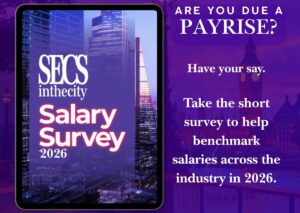The Case for a four-day work week? Nearly half of employees worldwide could do their jobs in five hours or less each day.
According to a global survey of nearly 3,000 employees across eight countries conducted by The Workforce Institute at Kronos Incorporated, nearly half (45%) of full-time workers say it should take less than five hours each day to do their job if they worked uninterrupted, while three out of four employees (72%) would work four days or less per week if pay remained constant. Yet, 71% of employees also say work interferes with their personal life.
The Workforce Institute at Kronos and Future Workplace has launched a series examining how employees across Australia, Canada, France, Germany, India, Mexico, the UK, and the US view their relationship with work. “The case for a four-day work week?” explores how employees spend their time while on the clock and if the standard 40-hour workweek is most effective.
The 40-hour conundrum: Workers say they have enough time, yet many still work OT (overtime)
- Even though 75% of full-time employees globally say that they have enough time in the workday to finish their major tasks, nearly two in five (37%) work more than 40 hours each week and 71% claims work interferes with their personal lives.
- Full-time employees in the UK are the second strongest (34%) to feel that they do not have enough time in the day to get the job done, yet they do not work the most hours. The U.S. leads the way with overtime, as 49% clocks more than 40 hours each week, followed by India (44%) and Germany (38%).
- If given more time in the workday, one in four workers (28% of individual contributors; 24% of people managers) would simply catch up on their work.
The case for a four-day workweek? Three-quarters of workers crave a longer weekend
- If pay remained constant, one third of global workers say their ideal work week would last four days (34%), while 20% said they would work three days a week. One in four global employees (28%) are content with the standard five-day work week.
- However, full-time workers in the UK desire a three-day workweek the most (26%) and the UK is one of the least content with the standard five-day work week.
- One-third of employees (35%) would take a 20% pay-cut to work one day less per week
Time (well) spent: Unrelated activity, administrative work impact biggest daily tasks
- Nearly nine out of 10 employees (86%) say they lose time each day on work-specific tasks unrelated to their core job, with 41% of full-time employees wasting more than an hour a day on these extraneous activities. Additionally, 40% of employees say they lose an hour-plus each day on administrative tasks that do not drive value for their organisation.
- When asked what they spend the majority of their workday doing, individual contributors (56%) and people managers (28%) both listed servicing customers/patients/students as their top task.
- The next highest-rated workday tasks for individual contributors include collaborating with co-workers, administrative work, manual labour, and responding to emails, while people managers list attending meetings, administrative work, collaborating with co-workers, and responding to emails as the top ways they spend their workday.
What’s the biggest time-waster at work? Depends on who you ask
- “Fixing a problem not caused by me” and administrative work were the top two answers given by full-time employees when asked what they waste the most time on at work. Meetings, email, and customer issues round out the top five time-wasters.
- Baby Boomers apparently waste the most time fixing problems caused by someone else. Gen Z was least-likely to clean up after others, yet they are most-likely to waste time on handling workplace conflict.
- Millennials blame social media the most as a time-sucker, and they agree with Gen X as the most-likely to say meetings are a waste of time. Gen Z is twice as likely than Baby Boomers to say talking on the phone is a time-waster.
- Part-time employees say they “waste” more time fixing problems caused by others and handling customer issues compared with their full-time counterparts. Conversely, full-time workers are twice as likely to waste time in meetings.
Too much wasted time or too much pressure: Are the extra hours causing burnout?
- More than half of all employees worldwide (53%) feel pressure to work longer hours or pick up extra shifts to grow their career – yet oftentimes that pressure comes from within. Of those who feel pressure to work longer, 60% put pressure on themselves while the rest say that pressure comes solely from their managers.
- Gen Z feels by far the most pressure to grow their careers (67%) – which is twice as more as their Baby Boomer colleagues (33%), who feel the least pressured.
- Even though 71% of workers accomplish what they want to at work every day or almost every day, three in four employees (79%) suffer from at least some burnout at work.
Joyce Maroney, executive director, The Workforce Institute at Kronos, said: “The biggest takeaway of this research isn’t that we should move to a shorter workweek or that we need a time machine to get all our work done. It’s clear that employees want to work and do well by their employers, and many roles require people to be present or on call during specific hours to get the job done – such as teachers, nurses, retail associates, plant workers, delivery drivers, and nearly all customer-facing roles.
“Organisations must help their people eliminate distractions, inefficiencies, and administrative work to enable them to work at full capacity. This will create more time to innovate, collaborate, develop skills and relationships, and serve customers while opening the door to creative scheduling options, including the coveted four-day workweek.”
Dan Schawbel, best-selling author and research director, Future Workplace, added: “Employees are working harder than ever and at the cost of their personal lives. This study confirms that we can all be more efficient with our workday, that there’s an opportunity to remove administrative tasks in exchange for more impactful ones, and that the traditional workweek isn’t as relevant in today’s business world. Employees need more flexibility with how, when, and where they work, and leaders should be supportive of an employee’s professional and personal life. When employees get time to rest, they become more productive, creative, and are healthier, meaning they take fewer sick days.”















